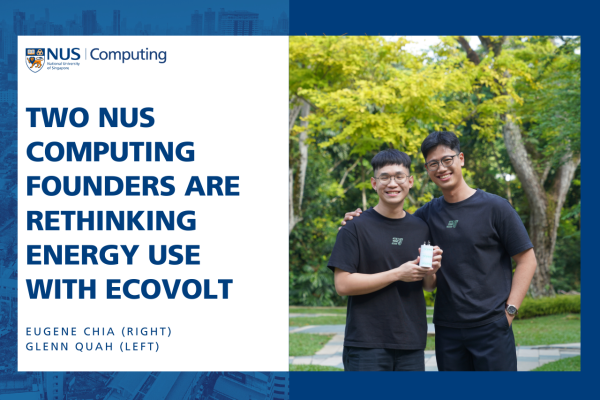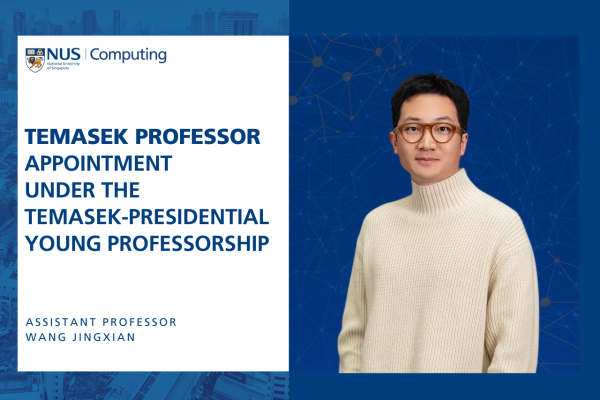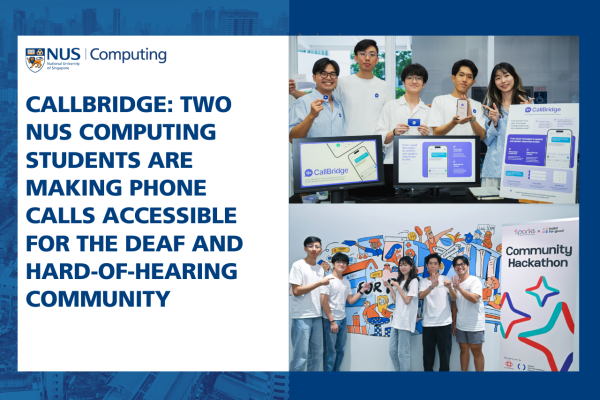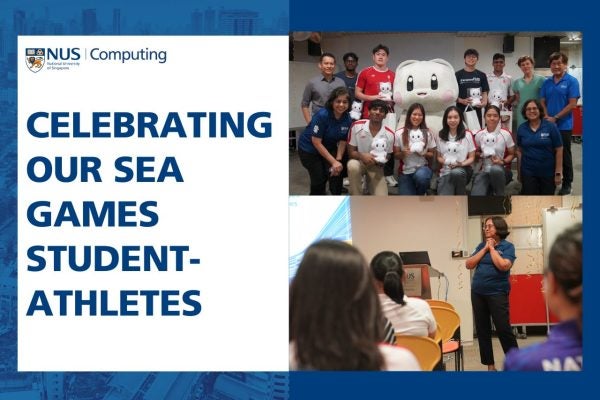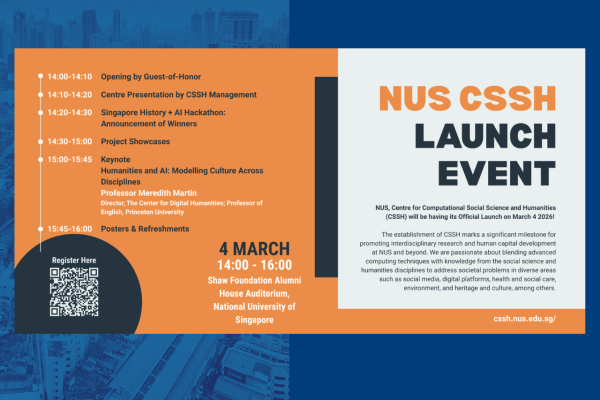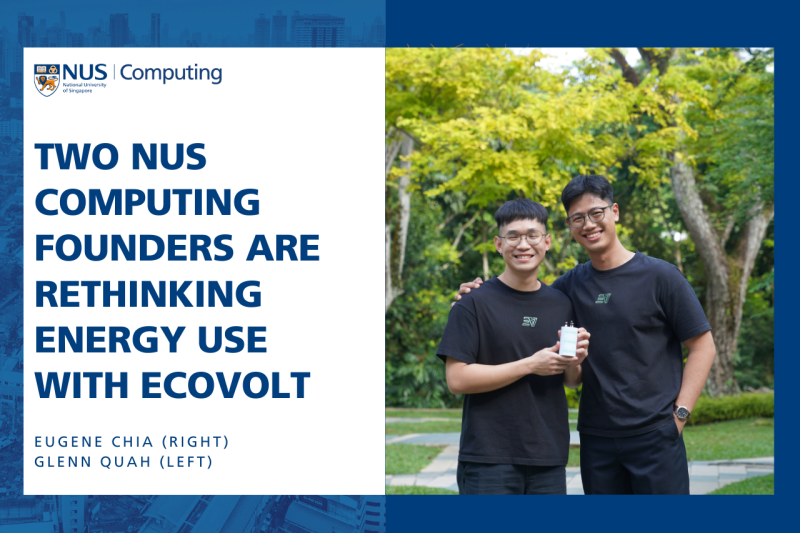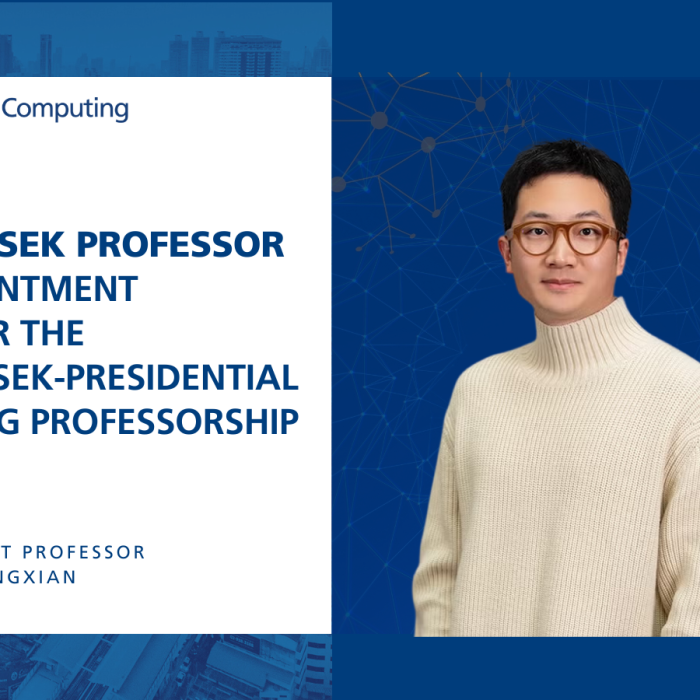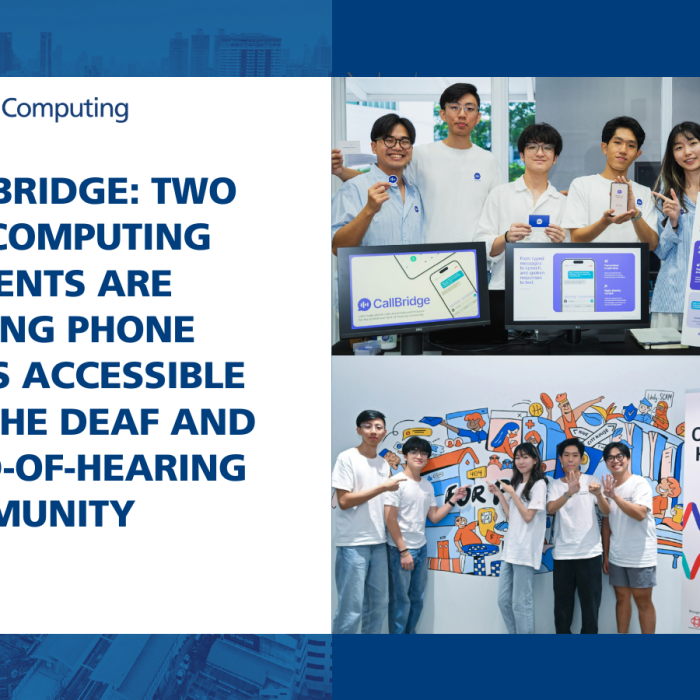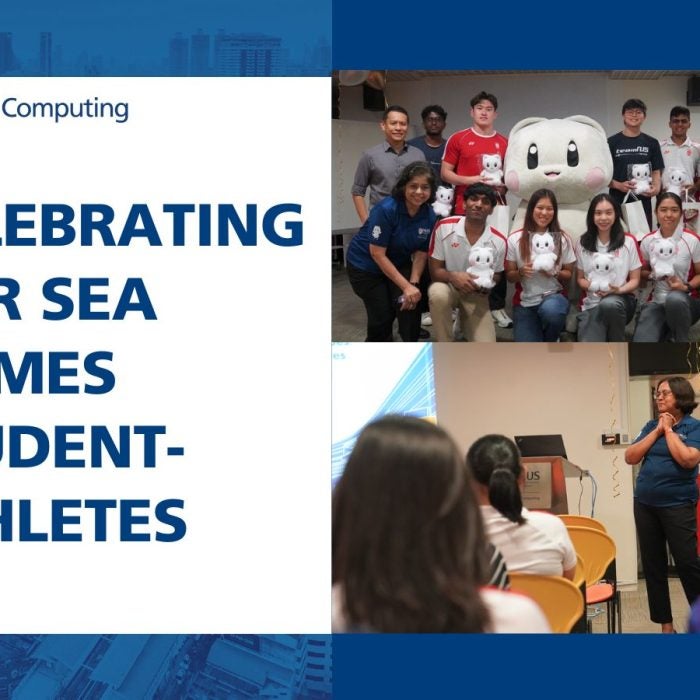News Hub
Home » Highlights
28 February 2026
For Eugene and Glenn, sustainability did not begin as a grand mission. It started with frustration – high electricity bills, limited visibility, and the sense that energy was being wasted in ways no one could clearly explain or control.
Eugene Chia, a Computer Science graduate from NUS School of Computing, and Glenn Quah, a final-year Information Systems student, are co-founders of Ecovolt, a startup developing smart energy solutions for schools and commercial buildings. Together with their third co-founder, Raphael, they are building systems that help organisations see, understand, and reduce energy waste at scale.
24 February 2026
NUS Computing congratulates Assistant Professor Wang Jingxian on his appointment as a Temasek Professor under the Temasek-Presidential Young Professorship.
21 February 2026
NUS School of Computing took part in its first-ever reciprocal computing exchange programme with the School of Informatics at Nagoya University. From 8 to 16 December, 14 NUS Computing students joined their counterparts in Nagoya for an academic and cultural immersion focused on artificial intelligence, robotics, and system design.
14 February 2026
12 students from the NUS School of Computing (SoC) proudly represented Singapore at the SEA Games 2025 in Bangkok, Thailand – demonstrating exceptional dedication as they balanced national-level competition with their academic commitments at SoC, supported by faculty and peers along the way.
11 February 2026
The School of Computing is pleased to support the launch of NUS' NUS' Centre for Computational Social Science and Humanities (CSSH) — a centre that brings computational approaches into closer dialogue with the social sciences and humanities.
9 February 2026
The AI programme at the NUS School of Computing has been named among the world's leading universities for Artificial Intelligence in the 2026 Analytics Insight rankings.

